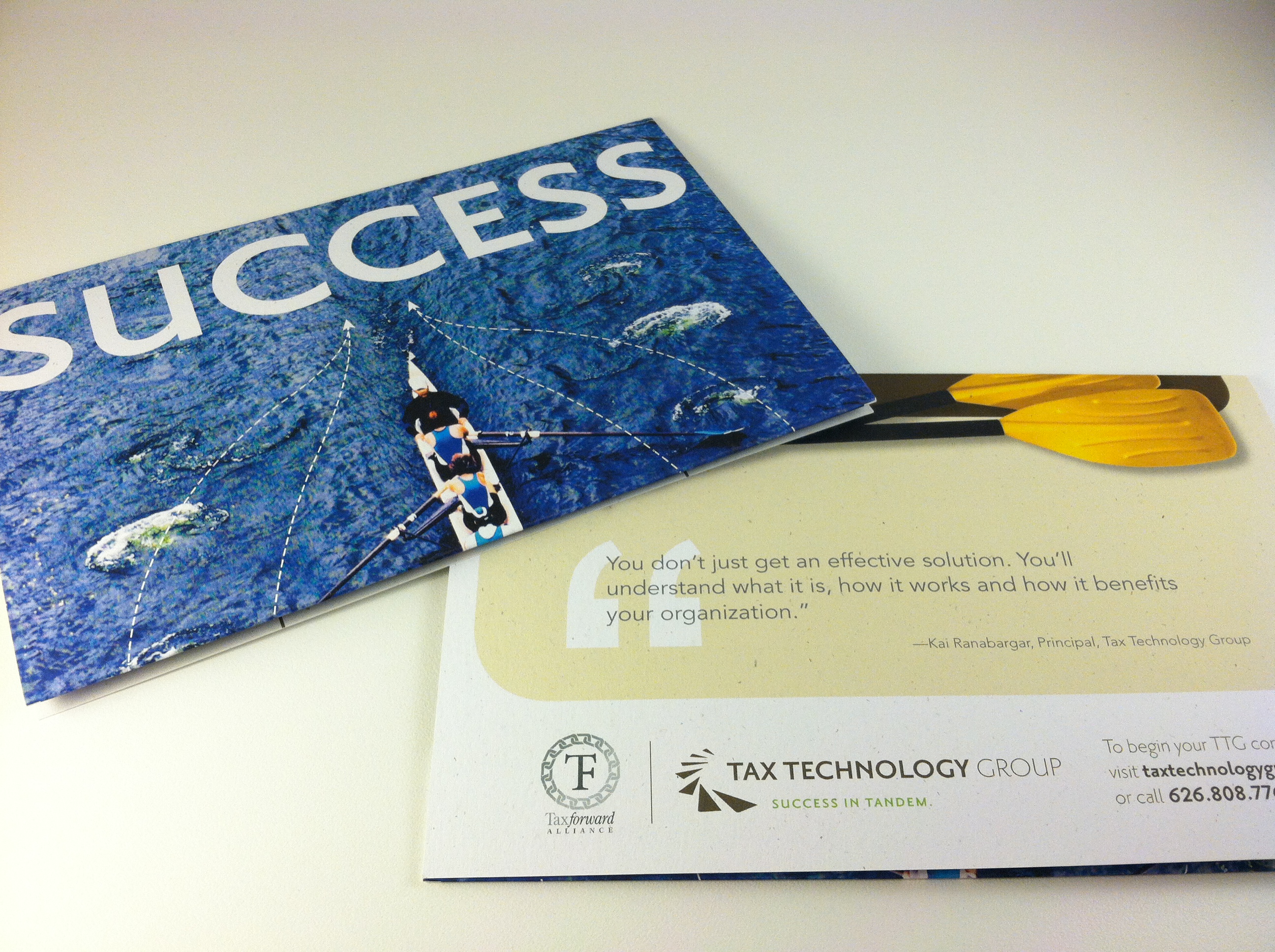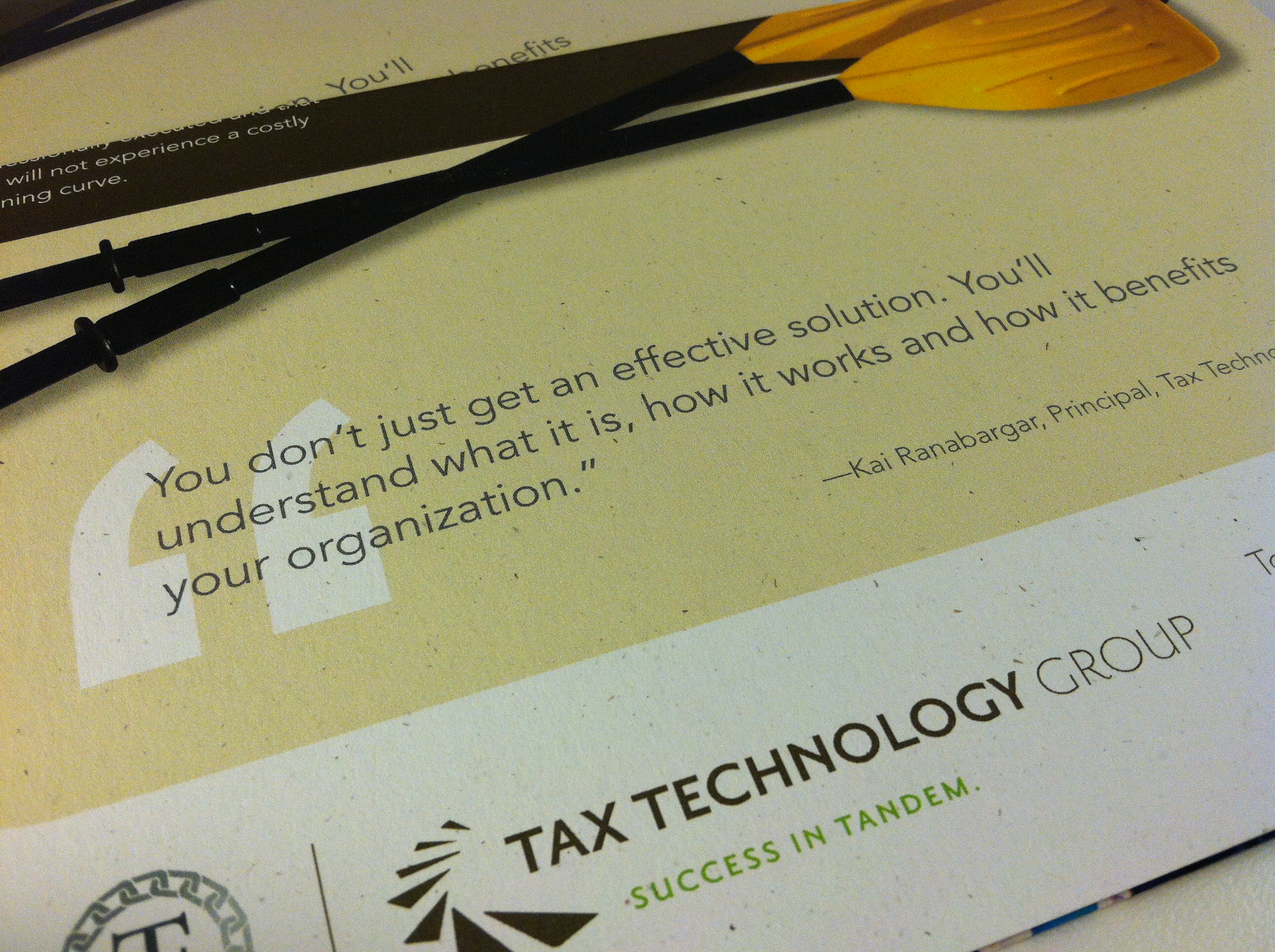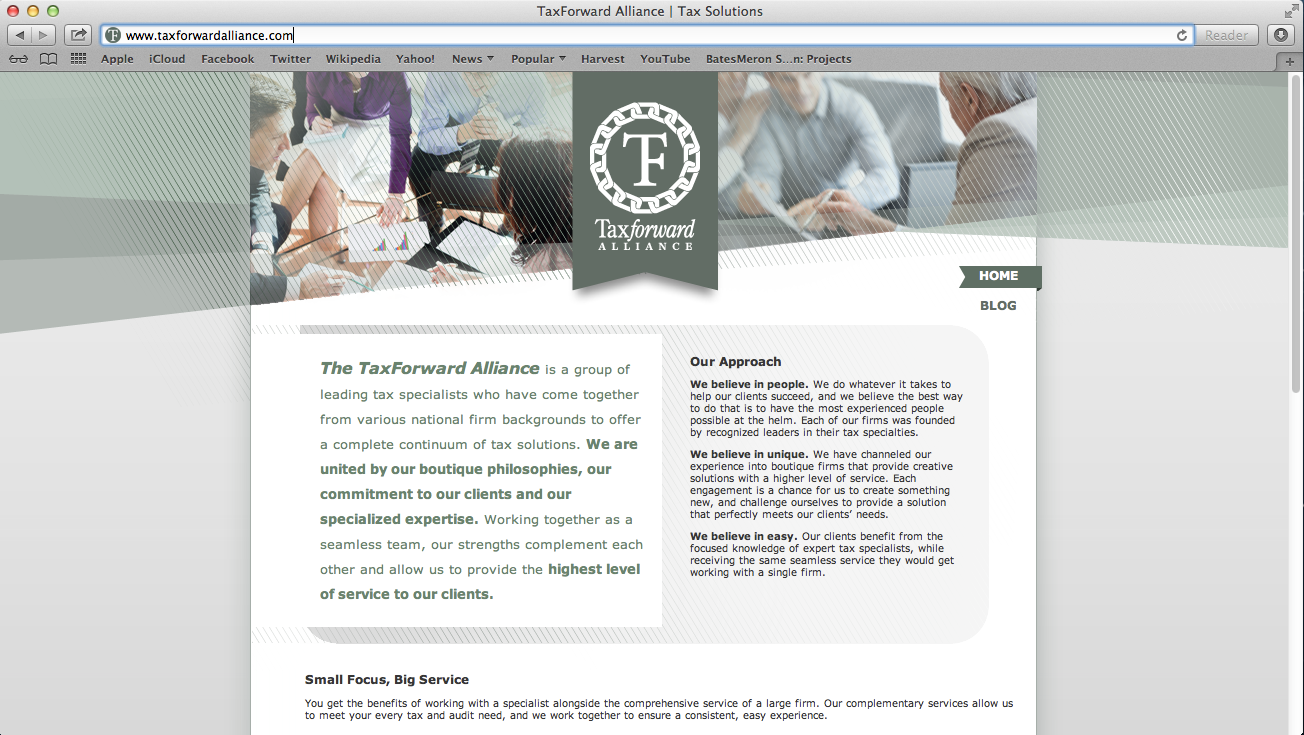As the Principal of Tax Technology Group, Kai Ranabargar knows what it takes to help tax departments find, select and implement transaction tax systems. Kai’s methodology to providing his clients with the most tailored, true and effective tax solutions helped guide TTG into the thoughtful and unique brand it is today.
I interviewed Kai as part of our 6 Questions feature: a series of one-on-one interviews with people we work with who’ve made us proud. We get very close to our clients and their brands during the brand development process, and when we see them doing great work and achieving great things, it’s very personal to us. They’re rocking their brands in exciting and innovative ways, taking the ideas we developed together and using them to grow their organizations. We find how a brand works out in the “real world” fascinating and hope you will, too.
Read on to learn Kai’s insight on what makes a strong business, what tax implementation actually is and how TTG is moving forward within the tax industry.
1. You started your own tax technology firm, Tax Technology Group, which focuses on finding, selecting and implementing transaction tax systems. What motivated you to start your own firm?
The truth is, the business started out of need. I had spent 12 years between two of the “Big Four” accounting firms and was a year away from making partner, but unfortunately the firm I was with at the time went out of business almost overnight. Thousands of employees were scrambling to find a job with another accounting firm. I was talking to a prospective client, and they suggested I start my own firm. They also said they would love to be my first client. That was 2003, and while the first few years were rough, I would never go back to being an employee again. I have complete control over the quality and customer service we provide.
2. How do you explain what you do to non-tech-savvy individuals?
Our primary focus is on “indirect taxes,” although the one most people are familiar with is sales tax. Unfortunately for companies the rules are ridiculously complex (there are over 11,000 taxing jurisdictions in the US, taxability varies by what is being sold/purchased). We help companies implement solutions, mainly technology-based, which reduce the tax “leakage” (over and under payment of taxes) and improve efficiency.
3. It wasn’t too long ago that BatesMeron came into the picture. How has the branding process helped you so far?
The biggest benefit from working with BatesMeron on our branding was their team’s ability to help define our key values, benefits and “elevator pitch” in succinct terms. Most consultants, myself included, are very analytical and “marketing” is outside of our comfort zone. BatesMeron was able to efficiently guide us through the branding process—the end result being a creative, clear and concise set of messages we can use with prospective clients. The feedback from current and prospective clients has been great.
4. BatesMeron worked closely with you to develop branding that accurately portrayed your firm’s insights and goals, specifically creating your tagline, “Success in tandem.” What does this message mean to you and why is it so important?
“Success in Tandem” refers to our strong partnering philosophy with our clients; we strongly believe that active client involvement in engagements is a critical success factor.
5. You played a big role in the development of TaxForward Alliance. Tell us about the Alliance’s initiative and what got it started.
Ten years ago large multinational consulting firms serviced the bulk of complex finance, tax and technology projects. Companies would rarely risk going with boutique firms. There has been a shift in mindset because over the last decade a lot of boutique specialty firms have either been started or employ highly skilled resources that use to work for the larger firms. Nowadays boutique specialty firms compete and win large project engagements because they have the skills necessary to get the job done correctly (and typically at a lower cost).
TaxForward Alliance was officially formed and launched last year and has had positive reception in the marketplace. Essentially, TFA allows member firms to provide a “one-stop shop” for most corporate tax needs. What makes TFA unique is that it is built on trusted relationships between a group of consultants who all offer unique value propositions and all members have a shared philosophy on proactive client service and high quality.
6. Within your career, what has been the most gratifying moment for you thus far?
The highlight for me came in 2006. We were in a competitive bid for a multi-million dollar project for a $60B multinational corporation and we were competing against the top multinational consulting firms. Winning that engagement was by far the most objective recognition of the firm and our ability to successfully deliver.













